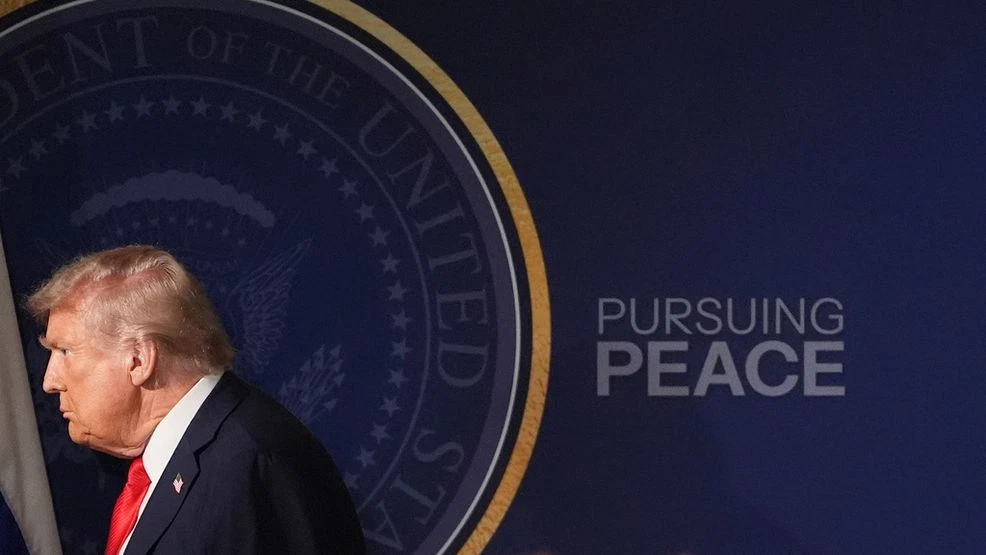Copyright WJLA

A second meeting between President Donald Trump and Russian leader Vladimir Putin has been put on hold again after the to stop the war in Ukraine and hold current battle lines to work out a diplomatic settlement to bring the conflict to an end. It was the latest setback in the series of stops and starts trying to get Russia to the negotiating table to bring an end to the war. Despite multiple calls between Trump and Putin and a splashy summit in Alaska, the U.S. has not been able to yield any progress in getting Russia to budge from its positions or back off its assault on Ukraine. The Kremlin told the White House during a call this week that it was clinging to its demands and released a statement rebuffing much of what the president had suggested for terms to pause the fighting. It resulted in the administration backing off a second meeting with Putin in the coming weeks that was deemed unlikely to yield progress. “I don’t want to have a wasted meeting,” Trump said on Tuesday. “I don’t want to have a wasted time, so I’ll see what happens.” Ukraine and European allies have agreed that fighting needs to end before negotiations start over concerns that Russia could use the time during talks to continue its bombardment. But Russia has refused to budge on what it would take to start a cease-fire and taken Trump’s suggestion that a pause in the fighting to work out a settlement amounted to a broken promise from previous talks with Washington. “It is now being said from Washington that there is a need to stop immediately, that there is no need to discuss anything further, and that ‘history should judge,’” Russian Foreign Minister Sergei Lavrov told reporters. “If we just stop, it means forgetting the root causes of this conflict, which the American administration clearly understood and voiced this understanding upon Trump’s assumption of power.” European leaders have frequently accused Putin of stalling for time throughout the attempts for peace talks, which have followed a similar pattern at each turning point. Russia has repeatedly suggested it was open to making a deal on the war, only to escalate its attacks on Ukraine as meetings happened and refused to budge on its conditions. “Putin's been viewing this as a war of attrition. That strategy for him, in Putin's mind, seems to be working even though the direct costs of that are just terrible,” said Javed Ali, a former counterterrorism official in federal government and associate professor of practice at the University of Michigan. “But he doesn’t care about that, as long as he can still sell Russian oil and gas and get those products to market, and then use that money to a keep funding the military, develop the military industrial complex and keep the domestic population happy with either subsidies or other things that don't make the average Russian feel like, at least economically, that this war is hurting them.” European allies have been trying to keep the U.S. involved in ways to apply pressure on Putin through enhanced sanctions and keeping Ukraine’s military stocked with weapons to fend off Russian troops. NATO secretary general Mark Rutte was to meet with Trump and discuss support for Ukraine and efforts to get to a cease-fire. “He’s the only one who can get this done,” Rutte said of Trump. Trump has suggested he would impose new tariffs or sanctions on Putin since returning to office but has yet to follow through on those threats. He had also signaled he was going to help , which are built to travel long distances at low altitudes to avoid missile detection systems that could be used to target Russian military outposts or energy facilities, but ultimately backed off during his meeting last week with Ukrainian President Volodymyr Zelenskyy. Zelenskyy said the missiles were necessary to put enough pressure on Putin to negotiate in good faith. It’s unclear whether the White House will ultimately sign off on giving or selling the missiles. “The front line can spark diplomacy. Instead, Russia continues to do everything to weasel out of diplomacy, and as soon as the issue of long-range capabilities for us — for Ukraine — became less immediate, Russia’s interest in diplomacy faded almost automatically,” Zelensky said in a video address. “This signals that this very issue — the issue of our deep strike capabilities — may hold the indispensable key to peace.” The U.S. has been hesitant to provide Ukraine with long-range missiles throughout the war, dating back to the Biden administration, over concerns it would escalate the conflict even further. Concerns about escalation have also led to delays in approving the transfer of other types of weaponry since the invasion started. “This is also another feature of U.S. policy over the last three and a half years, both with Biden and Trump, the incremental approach to giving Ukraine some of the most sophisticated or highly lethal capabilities that the U.S. has,” Ali said.



